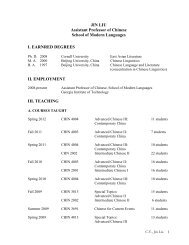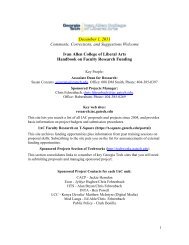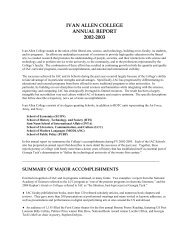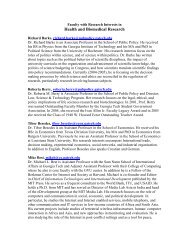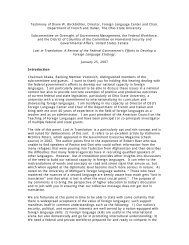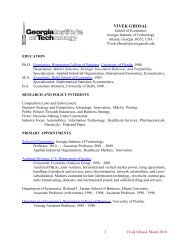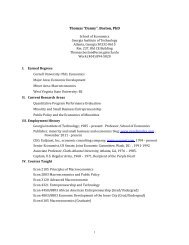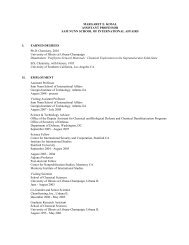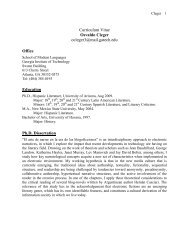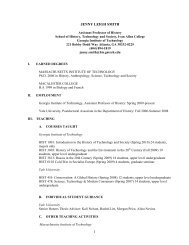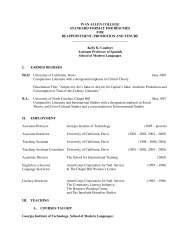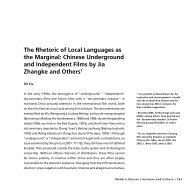Atlanta Housing - Georgia Institute of Technology
Atlanta Housing - Georgia Institute of Technology
Atlanta Housing - Georgia Institute of Technology
You also want an ePaper? Increase the reach of your titles
YUMPU automatically turns print PDFs into web optimized ePapers that Google loves.
householder or adopted by the householder. For example, a live-in aide is classified as a<br />
household member.<br />
Families consist <strong>of</strong> two or more persons related by birth, marriage or adoption and who reside<br />
together. A family may comprise an entire household, or it may be a subset <strong>of</strong> a household.<br />
That is, every household member is not necessarily a member <strong>of</strong> the householder’s family.<br />
Technically, this report did not examine families. Instead, the report examined households (all<br />
persons living in the housing unit), householders (the head <strong>of</strong> the households) and household<br />
members (the individual persons who live in the household). The report also did not track the<br />
total number <strong>of</strong> housing units, except where those units were occupied by householders.<br />
Vacant housing units are not measured.<br />
Types <strong>of</strong> <strong>Housing</strong> Assistance<br />
Low Income Public <strong>Housing</strong> (LIPH) are units that are typically located in traditional public<br />
housing developments and are generally reserved for non-elderly, non-disabled families. T<br />
Mixed-income Households: Mixed-income Family Developments provide housing services in<br />
newly revitalized mixed-income communities that contain public housing eligible rental units,<br />
rent subsidized units via tax credits, and market rate rental units.<br />
<strong>Housing</strong> Choice Vouchers -Tenant Based: Householders supported in this manner receive a<br />
regular voucher to <strong>of</strong>fset the market cost <strong>of</strong> rental housing.<br />
Project Based Rental Assistance (PBRA) or Project Based Vouchers: These vouchers allow AHA<br />
to leverage a broader array <strong>of</strong> housing opportunities in the private market and provide longterm<br />
housing assistance to low-income families. Project based assistance may be attached to<br />
housing developments that are located in more favorable neighborhoods; this gives<br />
householders access to better housing options.<br />
Supportive <strong>Housing</strong> Households: AHA’s supportive housing units support householders with<br />
intensive special needs including homelessness.<br />
Methodology<br />
To accomplish the research objectives, the following steps were taken:<br />
a. Established the baseline socioeconomic conditions and neighborhood<br />
characteristics <strong>of</strong> families who lived at Grady, University Homes (University),<br />
36 | P a g e



